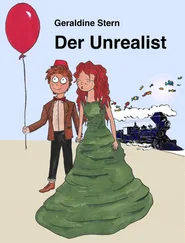I called for bearers to carry off the wounded men. One private, running, called to me that any who tried it would be shot full of more bullets than he had fingers and toes. Silas Stone, but lightly injured then, was stumbling on a twisted knee, so I gave him my arm and together we plunged into the woods, joining the chaos of the rout. We were trying to recover the top of the cow path—the only plain way down to the river—when we came upon another turkey vulture, close enough to touch it. It was perched on the chest of a fallen man and turned its head sharply at our intrusion. A length of organ, glossy and brown, dangled from its beak. Stone raised his musket, but he was already so spent that his hands shook violently. I had to remind him that if we didn’t find the river and get across it, we, too, would be vulture food.
We thrashed our way out of the thicket atop a promontory many rods short of the cow path. From there, we could see a mass of our men, pushed by advancing fire to the very brow of the bluff. They hesitated there, and then, of a sudden, seemed to move as one, like a herd of beasts stampeded. Men rolled, leaped, stumbled over the edge. The drop is steep: some ninety feet of staggered scarps plunging to the river. There were screams as men, bereft of reason, flung themselves upon the heads and bayonets of their fellows below. I saw the heavy boot of one stout soldier land with sickening force onto the skull of a slight youth, mashing the bone against rock. There was no point now in trying to reach the path, since any footholds it might once have afforded were worn slick by the frenzied descent. I crawled to the edge of the promontory and dangled from my hands before dropping hard onto a narrow ledge, all covered with black walnuts. These sent me skidding. Silas Stone rolled and fell after me. It wasn’t until we reached the water-laved bank that he told me he could not swim.
The enemy was firing from the cliff top by then. Some few of our men commenced tying white rags to sticks and climbing back up to surrender. Most flung themselves into the river; many, in their panic, forgetting to shed their cartridge boxes and other gear, the weight of which quickly dragged them under. The only boats were the two mud scows that had ferried us across. For these, men flung themselves until they were clinging as a cluster of bees dangling from a hive, and slipping off in clumps, four or five together. Those that held on were plain targets and did not last long.
I dragged off my boots and made Stone do the same, and bade him hurl his musket far out, to the deepest channel, so as to put it from reach of our enemies. Then we plunged into the chill water and struck out toward the island. I thought we could wade most of the way, for crossing at dawn, the poles had seemed to go down no significant depth. But I had not accounted for the strength of the current, nor the cold. “I will get you across,” I had promised him, and I might have done, if the bullet hadn’t found him, and if he hadn’t thrashed so, and if his coat, where I clutched it, hadn’t been shoddily woven. I could hear the rip of thread from thread, even over the tumbling water and the yelling. His right hand was on my throat, his fingers—callused tradesman’s fingers—depressing the soft, small bones around my windpipe. His left hand clutched for my head. I ducked, trying vainly to refuse him a grip, knowing he would push me under in his panic. He managed to snatch a handful of my hair, his thumb, as he did so, jabbing into my left eye. I went under, and the mass of him pushed me down, deep. I jerked my head back, felt a burn in my scalp as a handful of hair ripped free, and my knee came up, hard, into something that gave like marrow. His hand slid from my throat, the jagged nail of his middle finger tearing away a piece of my skin.
We broke the surface, spewing red-brown water. I still had a grip on his tearing jacket, and if he had stopped his thrashing, even then, I might have seized a stouter handful of cloth. But the current was too fast there, and it tugged apart the last few straining threads. His eyes changed when he realized. The panic just seemed to drain away, so that his last look was a blank, unfocused thing—the kind of stare a newborn baby gives you. He stopped yelling. His final sound was more of a long sigh, only it came out as a gargle because his throat was filling with water. The current bore him away from me feet first. He was prone on the surface for a moment, his arms stretched out to me. I swam hard, but just as I came within reach a wave, turning back upon a sunken rock, caught his legs and pushed the lower half of his body under, so that it seemed he stood upright in the river for a moment. The current spun him round, a full turn, his arms thrown upward with the abandon of a Gypsy dancer. The firing, high on the bluff, had loosed showers of foliage, so that he swirled in concert with the sunshine-colored leaves. He was face to face with me again when the water sucked him under. A ribbon of scarlet unfurled to mark his going, widening out like a sash as the current carried him, down and away. When I dragged myself ashore, I still had the torn fragment of wet wool clutched in my fist.
I have it now: a rough circle of blue cloth, a scant six inches across. Perhaps the sum total of the mortal remains of Silas Stone, wood turner and scholar, twenty years old, who grew up by the Blackstone River and yet never learned to swim. I resolved to send it to his mother. He was her only son.
I wonder where he lies. Wedged under a rock, with a thousand small mouths already sucking on his spongy flesh. Or floating still, on and down, on and down, to wider, calmer reaches of the river. I see them gathering: the drowned, the shot. Their hands float out to touch each other, fingertip to fingertip. In a day, two days, they will glide on, a funeral flotilla, past the unfinished white dome rising out of its scaffolds on a muddy hill in Washington, some forty miles from here. Will the citizens recognize them, the brave fallen, and uncover in a gesture of respect? Or will they turn away, disgusted by the bloated mass of human rot?
I should go now and find out where upon this island they are tending to the wounded. Naturally, the surgeon has not seen fit to send me word. The surgeon is a Calvinist, and a grim man, impatient with unlabeled brands of inchoate faith. In his view, a man should be a master of his craft, so that a smith should know his forge, a farmer his plow, and a chaplain his creed. He has made plain his disregard for me and my ministry. The first time I preached to the company, he observed that in his view a sermon that did not dwell on damnation was scant service to men daily facing death, and that if he wanted to hear a love poem he would apply to his wife.
I dragged a hand through my hair, which has dried out in tangled mats, like discarded corn silks at a husking. Even to raise my arm for that slight effort is a misery. Every muscle aches. My aunt was right, perhaps, in her bitter denunciation of my coming here: the cusp of a man’s fortieth year is no season for such an enterprise as this. And yet what manner of man would I be, who has had so much to say in the contest of words, if now I shirked this contest of blood? So I will stand here with those who stand in arms, as long as my legs can support me. But, as a private from Millbury observed to me today, “Virginia is a hard road, reckon.”
I stowed the lap desk in my rucksack. We had left the main part of our gear here on the island, but my blanket was sodden from the use of it to dry myself and to blot my soaking clothes. Still, there is some warmth in wool, wet or no. I carried it to a youth who lay, curled and keening, on the riverbank. The boy was dripping wet and shivering. I expect he will be on fire with fever by morning. “Will you not come up the bank with me to some drier ground?” I asked. He made no reply, so I tucked the blanket around him where he lay. We will both sleep cold tonight. And yet not, I think, as cold as Silas Stone.
Читать дальше












